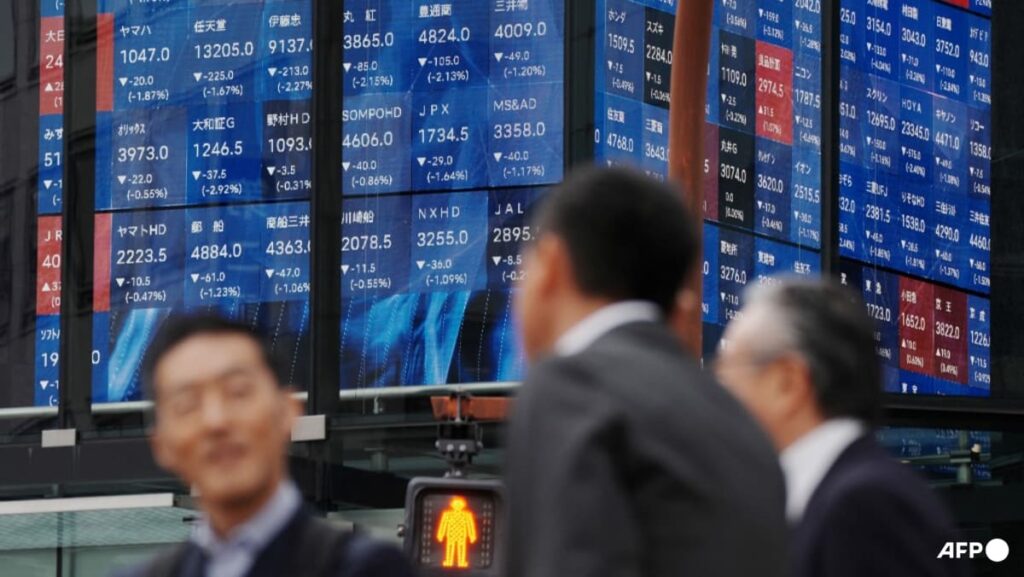Multibillion-dollar investment into AI has been a key driver of the global surge in mostly technology equities, sending valuations to record highs.
“For now, movements in the domestic (South Korean) market are inevitably tied to day swings in US tech stocks, including Nasdaq futures and Nvidia’s after-hours trading,” said Han Ji-young, an analyst from Kiwoom Securities.
“Nvidia’s earnings were undeniably a surprise, but in a time of heightened short-term volatility, even strong catalysts struggle to generate meaningful upside,” he added.
AI-related spending is expected to reach approximately US$1.5 trillion by 2025, according to US research firm Gartner, and more than US$2 trillion in 2026 – amounting to nearly 2 per cent of global gross domestic product.
Geopolitical tensions are helping drive the frenzy, primarily to build data centres housing tens of thousands of expensive chips that require phenomenal electrical power and energy-hungry cooling.
Japan’s SoftBank Group, a major backer of ChatGPT maker OpenAI, tumbled as much as 10.7 per cent in early trade.
SoftBank, OpenAI and cloud giant Oracle are jointly leading the US$500 billion Stargate project to build AI infrastructure in the United States announced by President Donald Trump in January.
SPI Asset Management’s Stephen Innes said there was no “single catalyst” for the stock routs.
“What we saw was the market hitting a psychological air pocket – the kind of reversal every veteran trader has lived through, yet cannot reasonably quantify or make sense of in real time,” he said.
“Japan, Korea, Australia all opened on the defensive, with traders fully aware that the Nvidia-led optimism evaporated before the US lunch hour.”
Read the full article here
